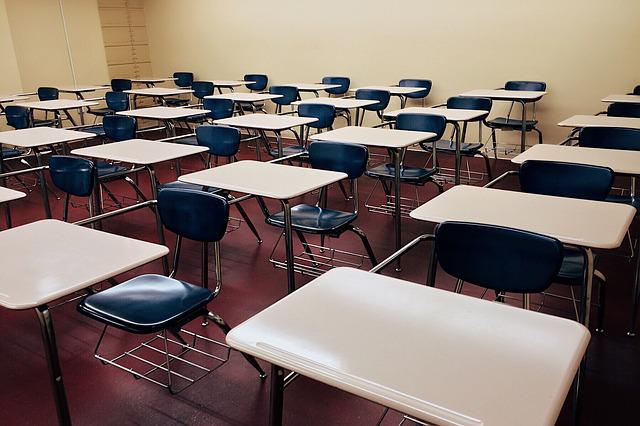Plan to reopen schools unveiled
Published 1:52 pm Friday, June 12, 2020
|
Getting your Trinity Audio player ready...
|
The office of Gov. Ralph Northam shared the governor’s guidance for a phased reopening of the state’s pre-K-12 schools.
In the release, Northam announced a phased approach developed by the Office of the Secretary of Education, Virginia Department of Health (VDH) and the Virginia Department of Education (VDOE) and informed by guidelines from the Centers for Disease Control and Prevention (CDC), allowing for schools to slowly resume in-person classes for summer school and the coming academic year.
Local school divisions, according to Northam, will have discretion on how to operationalize within each phase of reopening and may choose to offer more limited in-person options than the phase permits, if local public health conditions necessitate. Entry into each phase will be dependent on public health gating criteria, and school divisions “will have flexibility to implement plans based on the needs of their localities, within the parameters of the commonwealth’s guidance.”
The opportunities for in-person instruction in each phase, according to the release, are as follows:
Phase 1: (effective immediately) special education programs and child care for working families
Phase 2: Phase 1 plus preschool through third grade students, English learners, and summer camps in school buildings
Phase 3: all students may receive in-person instruction as can be accommodated with strict social distancing measures in place, which may require alternative schedules that blend in-person and remote learning for students
Beyond Phase 3: divisions will resume “new-normal” operations under future guidance
Beginning with Phase 2, local divisions and private schools will have to submit plans to the VDOE that detail the school’s policies and procedures for implementing VDH and CDC mitigation strategies.
In every phase, PreK-12 schools must follow CDC’s Guidance for Schools, including social and physical distancing, enhanced health and hygiene procedures, cleaning and disinfecting measures and other mitigation strategies. These precautions include, but are not limited to:
• Daily health screenings of students and staff
• Providing remote learning exceptions and teleworking for students and staff who are at a higher risk of severe illness
• The use of cloth face coverings by staff when at least six feet physical distancing cannot be maintained
• Encouraging the use of face coverings in students, as developmentally appropriate, in settings where physical distancing cannot be maintained
The release created more confusion than clarity to those looking for a more concrete timeline regarding the reopening of schools across the commonwealth.
Dr. Chip Jones, assistant superintendent of finance and operations and rising superintendent of Cumberland County Public Schools (CuCPS), gave some insight regarding how the phased approach might be implemented at Cumberland.
Jones highlighted that the timeline of phase implementation is dependent on the progression of the area’s health conditions, and that the school system is waiting on guidance from the governor in terms enacting various phases.
Northam’s guidance proposed strategies for scenarios like bus rides that included physical distancing, such as seating children one per seat, every other row, limiting capacity as needed to optimize distance between passengers.
The phased guidelines included options such as restricting the mixing of classes/ groups of students, closing communal spaces, limiting outdoor activities or recess, and eliminating large gatherings or assemblies.
The requirements raise the question of whether school systems would be able to accommodate social distancing and how school schedules would need to be altered in scenarios that would not allow for adequate space for each child.
Jones said CuCPS’s goal is to open school for students in Phase 3 in August 2020 in a “hybrid format,” which may include staggered schedules supplemented with distance learning to account for smaller class sizes.
He said the school system is also working on a plan for transportation, and that some parents may choose to transport their children to and from school themselves.
Like many parents, Debra and Vincent Marsh of Meherrin were frustrated and left with countless questions regarding the phased reopening process. The couple have three children who are students in Prince Edward County Public Schools, one of which is a special needs student.
For Debra and other parents, the implementation of social distancing in classrooms and on school buses, the possibility of asking small children to wear masks and the rigorous cleaning that would be necessitated by reopening schools seems like more than just a tall order; it feels implausible.
“It’s not feasible,” she said.
The prospect of sending the kids back to school in a world full of so many unknowns is a large source of worry for Debra.
“It’s very stressful. Your child looks at you and says, ‘Momma, what’s going to happen to me? Where do I go from here? Suppose I catch this virus … what would happen to you, Mom, if I bring this virus back to you? What would we do?’”
Like others, Debra’s family considered the possibility of homeschooling due to concerns surrounding the health crisis, but internet access may make that option difficult for many.
Debra said while education is important, it’s the health and safety of the students that should be at the top of officials’ priorities. She felt area schools would benefit from continued packet-based education and letting families “ride it out” while health officials further study the effects of the virus.
Debra added the school systems should make sure to emphasize the opinions and feelings of parents and guardians as they approach a reopening strategy, working with students’ caregivers to develop plans that take into consideration the issues families will face in this uncharted territory of post-pandemic education. She said parents need to be heavily involved in the reopening process.




